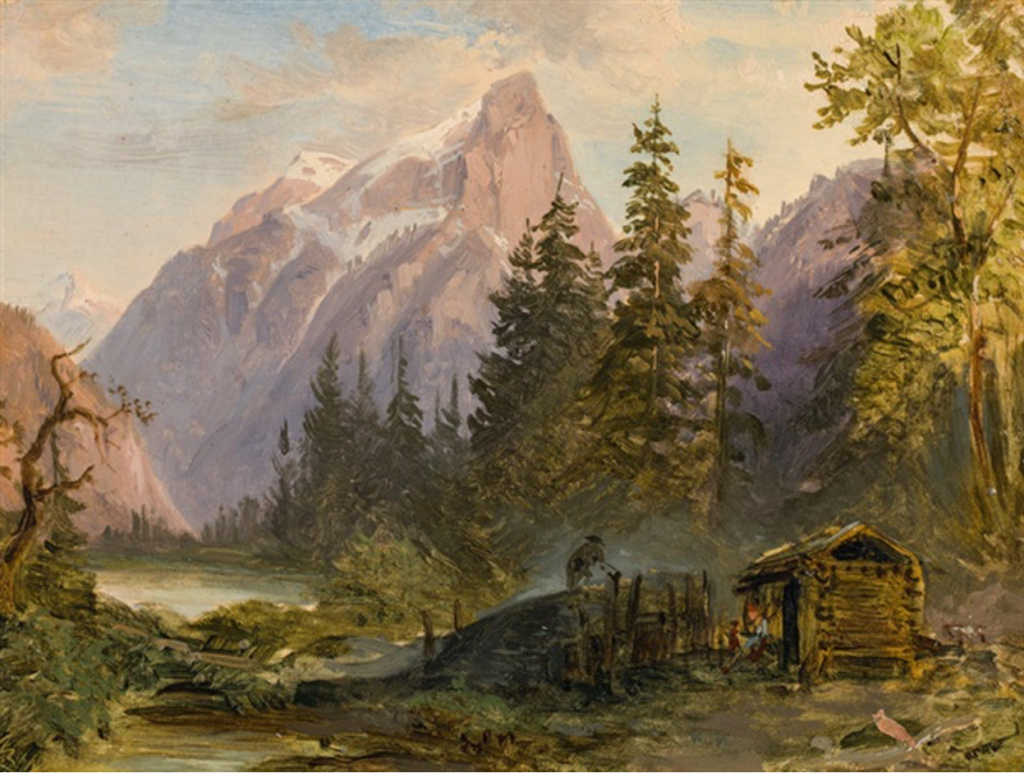Resting
(Poet's title: Rast)
Set by Schubert:
D 911/10
[February 1827]
Part of Winterreise, D 911
Nun merk ich erst, wie müd ich bin,
Da ich zur Ruh mich lege;
Das Wandern hielt mich munter hin
Auf unwirtbarem Wege.
Die Füße frugen nicht nach Rast,
Es war zu kalt zum Stehen,
Der Rücken fühlte keine Last,
Der Sturm half fort mich wehen.
In eines Köhlers engem Haus
Hab Obdach ich gefunden;
Doch meine Glieder ruhn nicht aus:
So brennen ihre Wunden.
Auch du, mein Herz, in Kampf und Sturm
So wild und so verwegen,
Fühlst in der Still erst deinen Wurm
Mit heißem Stich sich regen.
I now realise for the first time how tired I am,
Now that I am lying down to rest;
Travelling kept me cheerful
On an inhospitable path.
My feet did not ask for rest,
It was too cold to stand still,
My back did not feel any burden,
The storm helped to move me forward.
In the narrow house of a charcoal burner
Is where I have found shelter;
Yet my limbs cannot settle down:
Their wounds are burning so much.
You too, my heart, in battle and storm
So savage and so foolhardy,
In this silence it is the first time you have felt your serpent
Move with its hot venom!
All translations into English that appear on this website, unless otherwise stated, are by Malcolm Wren. You are free to use them on condition that you acknowledge Malcolm Wren as the translator and schubertsong.uk as the source. Unless otherwise stated, the comments and essays that appear after the texts and translations are by Malcolm Wren and are © Copyright.
☙
Themes and images in this text:
Cold Feet Hearts Heat Houses Journeys Noise and silence Rest Snakes Storms Tiredness War, battles and fighting Winter Wounds
This all makes sense. He has been using physical pain to distract him from mental torment, but it was not a conscious decision. His body seemed to crave exercise, even in a hostile landscape with ugly weather. The biting cold and driving rain somehow cheered him up and gave him a focus, but the moment he stops the nature of the pain changes.
The aching muscles and sore feet of course make themselves felt, but that is bearable. The real problem is the inner torment. He can now feel ‘the worm turning’. (‘Ein Wurm’ can refer to anything from an earthworm, through a host of venomous snakes, to a fire-breathing dragon; such a beast would indeed fit the phrase ‘mit heißem Stich’, literally ‘with a hot sting’.)
Even the previous day’s physical exertions will not have done enough to allow him to sleep well and blank out all the negative thoughts. If he does sleep fitfully his anxiety will make itself felt in disturbing dreams (as we are about to discover in Frühlingstraum). There is nothing restful about ‘Rast’.
Note on the charcoal burner
It is tempting to look for some significance in the (absent) figure of the charcoal burner. Is the traveller comparing his own inner state to the smouldering wood that is being charred and converted into carbon (following on from the earlier references to inner heat)? Or is the hut empty because the local resources have been used up and the charcoal burner has moved on, symbolising the traveller’s total exhaustion and lack of inner fire?
Ian Bostridge puts forward an astonishingly creative analysis of the figure of the charcoal burner in his book on Winterreise. He argues that there is a political subtext here represented by the ‘Carbonari’, an underground nationalist movement that had grown out of resistance to the French occupation of the Italian peninsula.


Charcoal Burner’s hut at Hintersee near Berchtesgaden c. 1835-39
☙
Original Spelling Rast Nun merk' ich erst, wie müd' ich bin, Da ich zur Ruh' mich lege; Das Wandern hielt mich munter hin Auf unwirthbarem Wege. Die Füße frugen nicht nach Rast, Es war zu kalt zum Stehen, Der Rücken fühlte keine Last, Der Sturm half fort mich wehen. In eines Köhlers engem Haus Hab' Obdach ich gefunden; Doch meine Glieder ruhn nicht aus: So brennen ihre Wunden. Auch du, mein Herz, in Kampf und Sturm So wild und so verwegen, Fühlst in der Still' erst deinen Wurm Mit heißem Stich sich regen!
Confirmed by Peter Rastl with Gedichte aus den hinterlassenen Papieren eines reisenden Waldhornisten. Herausgegeben von Wilhelm Müller. Zweites Bändchen. Deßau 1824. Bei Christian Georg Ackermann, pages 100-101; and with Urania. Taschenbuch auf das Jahr 1823. Neue Folge, fünfter Jahrgang. Leipzig: F. A. Brockhaus. 1823, page 220. First published in Urania (see above) as no. 10 of Wanderlieder von Wilhelm Müller. Die Winterreise. In 12 Liedern
To see an early edition of the text, go to page 220 Erstes Bild 258 here: https://download.digitale-sammlungen.de/BOOKS/download.pl?id=bsb10312443


